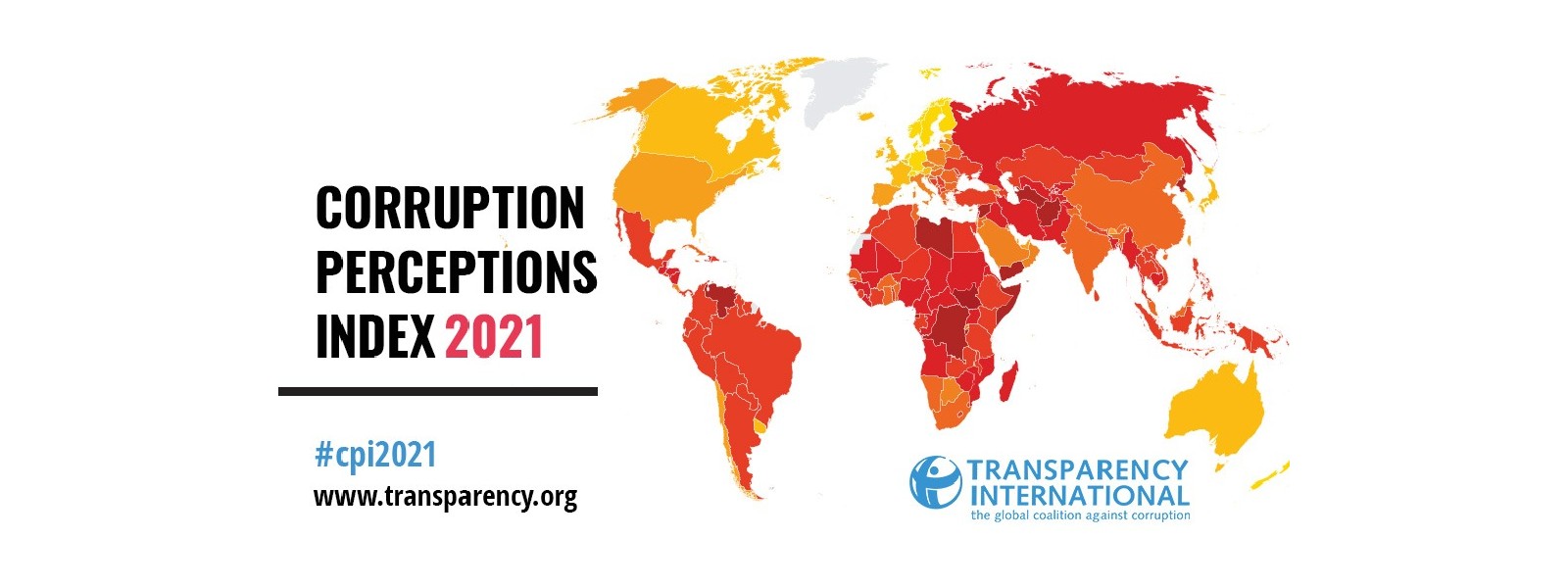.webp)

Sri Lanka drops from 94 to 102 in Corruption Perceptions Index
COLOMBO (News 1st); Sri Lanka's score on the latest Corruption Perceptions Index (CPI) compiled by Transparency International stands at 37, which is a point lower than last year.
The CPI scores 180 countries and territories around the world based on perceptions of public sector corruption, while the scores reflect the views of experts and surveys from businesspeople. The CPI is calculated using data from 13 external sources, including the World Bank, World Economic Forum, private risk and consulting companies, think tanks and others. The CPI uses a scale from 0 to 100; 100 being very clean and 0 being highly corrupt.
Moreover, Sri Lanka’s rank has dropped from 94th in 2020 to 102 in 2021. Over the past 10 years Sri Lanka’s CPI score has remained relatively the same with the lowest score of 36 being reported in 2016 and the highest score of 40 being reported in 2012.
Types of public sector corruption captured in the CPI encompasses bribery, diversion of public funds, effective prosecution of corruption cases, adequate legal frameworks, access to information, and legal protections for whistleblowers, journalists and investigators.
According to Transparency International, Sri Lanka’s overall performance is in line with the observation that corruption levels remain at a standstill worldwide, with 86 % of countries making little to no progress in the last 10 years.
Furthermore, Transparency International notes that the global COVID-19 pandemic has been used in many countries as an excuse to curtail basic freedoms and side-step important checks and balances. It adds that despite the increasing international momentum to end the abuse of anonymous shell companies, many high-scoring countries with relatively “clean” public sectors continue to enable transnational corruption.
The top countries on the Index are Denmark (88), Finland (88) and New Zealand (88) while Somalia (13), Syria (13) and South Sudan (11) remain at the bottom of the CPI.
Transparency International makes the following recommendations to governments to combat the vicious cycle of corruption, human rights violations and democratic decline:
Uphold the rights needed to hold power to account.
Restore and strengthen institutional checks on power.
Combat transnational forms of corruption.
Uphold the right to information in government spending.
Other Articles
Featured News





.png )
-819924_550x300.jpg)
-819903_550x300.jpg)


-819885_550x300.jpg)





-819380_550x300.jpg)


-812087_550x300.jpg)
-810262_550x300.jpg)
















.gif)